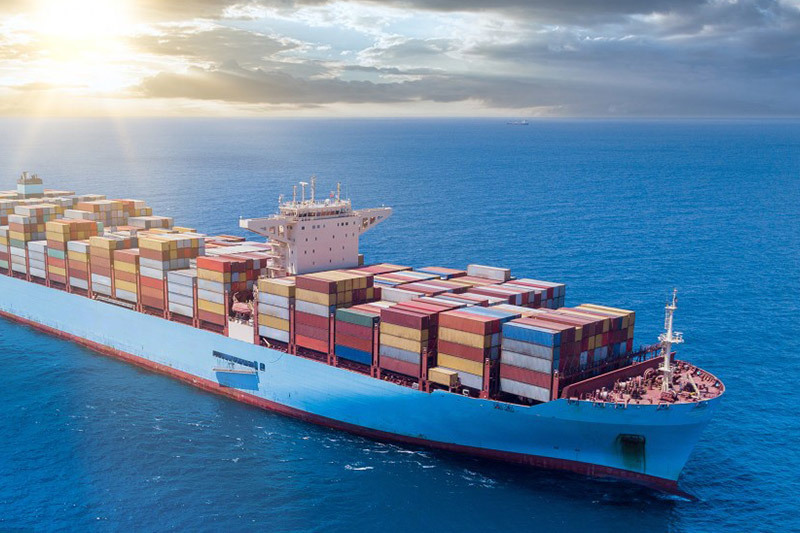news
How Effective Ship Operations Management Can Transform Your Fleet
How Effective Ship Operations Management Can Transform Your Fleet
Table of Contents
1. Introduction to Ship Operations Management
2. The Importance of Ship Operations Management
3. Key Components of Effective Ship Operations Management
3.1 Fleet Planning and Scheduling
3.2 Performance Monitoring and Analysis
3.3 Crew Management and Training
4. Utilizing Technology in Ship Operations Management
4.1 The Role of Advanced Software Solutions
4.2 Benefits of IoT and Big Data
5. Regulatory Compliance and Risk Management
6. Sustainable Practices in Ship Operations
7. Future Trends in Ship Operations Management
8. FAQs About Ship Operations Management
9. Conclusion
1. Introduction to Ship Operations Management
In the maritime industry, **ship operations management** serves as the backbone of a fleet's success. With rising competition and increasing operational costs, effectively managing every aspect of ship operations has become essential. This article delves into the strategies and technologies that can transform your fleet's efficiency, enhance safety, and ultimately improve profitability.
2. The Importance of Ship Operations Management
Effective ship operations management is crucial for several reasons:
1. **Cost Efficiency**: By optimizing operational processes, companies can significantly reduce costs related to fuel consumption, maintenance, and labor.
2. **Safety and Compliance**: Ensuring that all operations adhere to safety regulations minimizes the risk of accidents and potential legal ramifications.
3. **Environmental Responsibility**: Sustainable maritime practices are increasingly important, with regulations on emissions and waste management becoming stricter.
4. **Customer Satisfaction**: Timely deliveries and reliable services enhance customer trust and retention, vital for competitive advantage.
3. Key Components of Effective Ship Operations Management
Various components contribute to successful ship operations management. Understanding these elements is key to optimizing your fleet.
3.1 Fleet Planning and Scheduling
Effective fleet planning involves utilizing tools and methodologies to schedule voyages efficiently. This includes analyzing weather patterns, port conditions, and operational capacity. A well-planned schedule reduces **downtime**, enhances vessel utilization, and promotes timely deliveries.
3.2 Performance Monitoring and Analysis
Regularly monitoring vessel performance enables operators to identify inefficiencies. By leveraging **KPIs** (Key Performance Indicators), such as fuel consumption rates and maintenance intervals, operators can pinpoint areas for improvement. This data-driven approach ensures informed decision-making, ultimately leading to enhanced fleet performance.
3.3 Crew Management and Training
A skilled and well-trained crew is essential for effective ship operations. Ensuring that crew members are adequately trained in safety protocols, equipment handling, and emergency response procedures is vital. Implementing regular training programs can enhance crew competency and foster a culture of safety and excellence at sea.
4. Utilizing Technology in Ship Operations Management
Technology plays a pivotal role in modernizing ship operations. Adopting advanced tools can streamline processes and enhance operational efficiency.
4.1 The Role of Advanced Software Solutions
Software solutions specifically designed for ship operations management can automate various tasks, from route planning to inventory management. Implementing integrated systems allows for real-time data sharing across different departments, promoting transparency and collaboration.
4.2 Benefits of IoT and Big Data
The Internet of Things (IoT) and big data analytics offer unprecedented opportunities for maritime operators. IoT devices can monitor vessel health, collect performance data, and provide predictive maintenance alerts, ensuring optimal operations. Big data analytics can help identify trends and patterns, enabling operators to make proactive decisions based on comprehensive insights.
5. Regulatory Compliance and Risk Management
Compliance with international maritime regulations, such as the International Maritime Organization (IMO) standards, is non-negotiable. Effective ship operations management ensures that all vessels adhere to these regulations, minimizing the risk of violations and associated penalties. Establishing a risk management framework that identifies potential hazards and implements mitigation strategies is essential for maintaining safety and compliance.
6. Sustainable Practices in Ship Operations
Sustainability is not just a trend but a necessity in today’s shipping industry. Implementing environmentally-friendly practices can lead to significant cost savings and enhance a company’s reputation. Strategies such as optimizing fuel efficiency, investing in cleaner technologies, and adopting waste management practices contribute to a greener fleet.
7. Future Trends in Ship Operations Management
The maritime industry is evolving rapidly, influenced by technological advancements and changing regulations. Future trends include:
- **Autonomous Shipping**: The development of autonomous vessels promises to revolutionize ship operations, offering increased efficiency and reduced labor costs.
- **Blockchain Technology**: Utilizing blockchain for logistics can enhance transparency, streamline processes, and reduce fraud in shipping.
- **Enhanced Data Analytics**: As technology progresses, the ability to harness big data for predictive analytics will empower operators to make more informed decisions.
8. FAQs About Ship Operations Management
1. What is ship operations management?
Ship operations management refers to the planning, execution, and monitoring of all activities related to operating a fleet of vessels efficiently and safely.
2. How can technology improve ship operations?
Technology can enhance ship operations by automating processes, providing real-time data, and enabling predictive maintenance, ultimately leading to increased efficiency and reduced costs.
3. What are the key challenges in ship operations management?
Key challenges include regulatory compliance, crew training, cost management, and adapting to technological changes.
4. Why is crew management crucial in maritime operations?
Effective crew management ensures that personnel are well-trained and equipped to handle operations safely, which directly impacts the overall performance and safety of the fleet.
5. How can I ensure compliance with maritime regulations?
Regular audits, staff training, and staying updated with regulatory changes are essential steps to ensure compliance with maritime laws and standards.
9. Conclusion
Mastering ship operations management is essential for transforming your fleet’s performance. Through effective planning, leveraging technology, ensuring compliance, and adopting sustainable practices, maritime operators can significantly enhance efficiency, safety, and profitability. As the industry continues to evolve, embracing these strategies will position your fleet for future success, ensuring you stay ahead in an increasingly competitive landscape.
Other news
Exploring the Benefits of Used Commercial Vessels for Your Transportation Needs
When it comes to the transportation industry, the choice of vessels plays a crucial role in operational efficiency and cost-effectiveness. Used commercial vessels have gained popularity among businesses seeking to optimize their maritime logistics. Purchasing a pre-owned vessel can offer several benefits that are both practical and financially savvy. One of the foremost advantages of acquiring a u
Exploring the Efficiency of Self Unloading Bulk Carriers: Revolutionizing Maritime Transport
Exploring the Efficiency of Self Unloading Bulk Carriers Table of Contents Introduction to Self Unloading Bulk Carriers History and Evolution of Self Unloading Bulk Carriers Design Features of Self Unloading Bulk Carriers Operational Efficiency of Self Unloading Bulk Carriers Advantages Over Traditional Bulk Carriers Environmental Impact and Sustainability Technological Advancements
Understanding the Significance of 5000 DWT Bulk Carriers in Maritime Transport
Bulk carriers are a vital component of the maritime transport sector, particularly when it comes to the efficient movement of solid bulk commodities. One of the most commonly utilized classes of these vessels is the 5000 DWT (Deadweight Tonnage) bulk carrier. Understanding their specifications and advantages can provide valuable insights into their significance within the shipping industry. A 5000
Privacy
The Software respects and protects the personal privacy of all users of the Services. In order to provide you with a more accurate and personalized service, the Software will use and disclose your personal information in accordance with this Privacy Policy. However, the Software will treat such information with a high degree of diligence and duty of care. Except as otherwise provided in this Privacy Policy, the Software will not disclose or provide this information to third parties without your prior permission. The Software may update this Privacy Policy from time to time. You will be deemed to have agreed to this Privacy Policy in its entirety when you agree to the Software Service Use Agreement. This Privacy Policy is an integral part of this Software Service Use Agreement. 1. Scope of ApplicationIn your use of the Software's network services, the Software automatically receives and records information on your cell phone, including, but not limited to, your health data, the language used, the date and time of access, information on hardware and software characteristics, and data on webpage records of your needs; 2. Use of InformationAfter obtaining your data, the Software uploads it to the server to generate your leaderboard data so that you can better use the Services. The Software will upload your data to the server to generate your ranking data so that you can use the service in a better way. 3. Information Disclosure 3.1 The Software will not disclose your information to untrusted third parties. 3.2 In accordance with the relevant provisions of the law, or the requirements of administrative or judicial bodies, disclosure to third parties or administrative or judicial bodies; 3.3 If you appear to violate the relevant Chinese laws, regulations or relevant rules, it is necessary to disclose it to a third party; 4. Information Storage and Exchange The information and materials collected by the Software about you will be stored on the servers of the Software and/or its affiliates. The information and data may be transferred to and accessed, stored and displayed outside of your country or region or the country in which the Software collects the information and data. 5. Information Security When using the Software's network services to conduct online transactions, you will inevitably disclose your personal information, such as contact information or postal address, to the counterparty or potential counterparty. Please protect your personal information and provide it to others only when necessary. If you find that your personal information has been compromised, please contact the software's customer service immediately so that the software can take appropriate measures.













